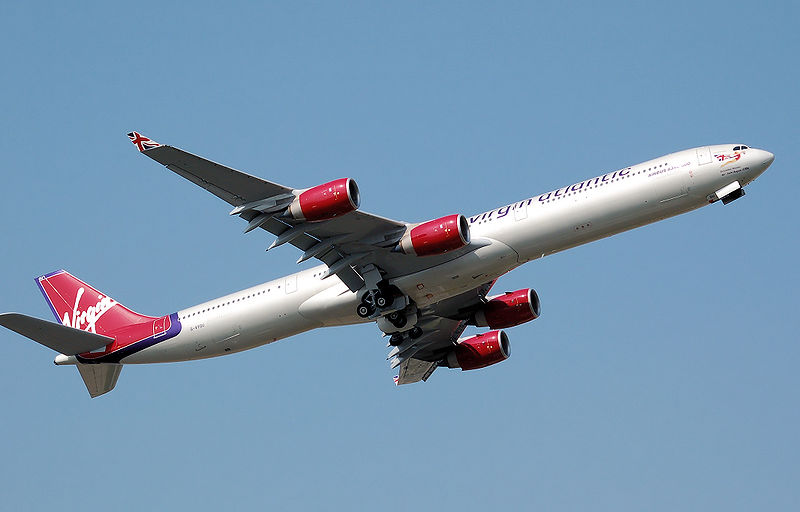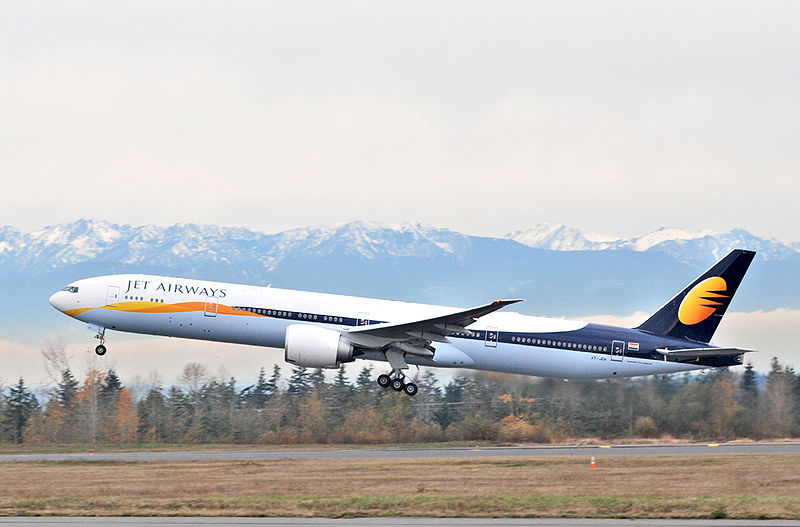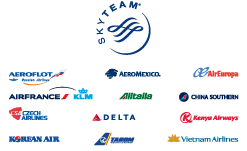Virgin Atlantic Airways is in a peculiar situation. The airline, promoted by Sir Richard Branson, does not belong to one of the three major alliances (Star, OneWorld, Sky Team). The airline’s viability is now threatened by the industry consolidation, the Open Skies agreement between the European Union and the United States and Anti Trust Immunity (ATI) granted to the airline alliances for the transatlantic services. The ATI for OneWorld partners British Airways, Iberia and American Airlines especially threatens Virgin’s long term ability to compete in the important UK-US aviation market.

Virgin Atlantic A340-600: Courtesy - Virgin Atlantic Airways
Virgin Atlantic has been a long time opponent of any alliance between AA and BA (no wonder its tagline was “No Way BA/AA”). Rumors have been that Virgin is finally evaluating its options and the SkyTeam is trying to come up with a bid to acquire Virgin.
Virgin Atlantic’s strengths
Virgin Atlantic’s important strength is its slots at London’s Heathrow Airport (LHR). LHR is the biggest international airport in the world and London is the most important transatlantic business market along with New York. Virgin is an important player in that market.
Virgin Atlantic has an excellent product which is consistently ranked as one of the best in the world, well above that of the mainline European and North American airlines. Only carriers like Singapore Airlines and Emirates can challenge Virgin’s product. Virgin’s lounges and airport clubs have been top notch and it has a stellar brand loyalty.
Virgin through its subsidiaries Virgin Blue and V Australia, has a decent footprint in Australia.
Virgin Atlantic’s weaknesses
Virgin’s route network is mostly long haul, point-to-point. Passenger traffic is mostly to O&D. It was setup that way by the management. In this world of alliances and frequent flyer loyalties, it is difficult for Virgin to develop new markets.
Virgin has no flights within the UK except at London (LHR and Gatwick), Manchester and Glasgow. Virgin has no flights to the rest of the Europe as well. This makes Virgin a niche player, making it difficult to expand its market share.
Virgin’s fleet primarily consists of B747s and A340s. Most competitors utilize more efficient B777s and A330s (which are slowly showing up in Virgin’s fleet now). This means Virgin’s operating cost will be higher than its competitors.
Sir Richard has his footprint all over the airline. Even though this is a good thing in general, the industry may view it the other way. He might not be open for outright acquisition and liquidation of Virgin brand.
Opportunity for Delta and SkyTeam
Rumors are on the rounds that Delta, along with its SkyTeam partners Air France-KLM, is preparing a bid to acquire Virgin. This is a great opportunity for Delta and SkyTeam. They can acquire the 49% stake currently held by Singapore Airlines. There are immediate benefits.
Delta and SkyTeam resolve their biggest missing link – a strong foothold in London and UK in general.
Delta gains the new additional slots at LHR. This greatly enhances its ability to serve the busiest transatlantic market: London – New York. Combining Delta’s and Virgin’s flights would give the BA/AA combo a better competition (still BA/AA would be the strongest player in this market for the foreseeable future). It will move Delta to the second place in this market ahead of Continental. Delta will have flights to the top five US-UK air travel markets: New York, Chicago, Los Angeles, Washington, San Francisco. Except New York, Delta does not operate in any of these markets. Combine this with Delta’s growing London – Boston and London – Miami routes, and its dominance at Atlanta and Detroit, the SkyTeam becomes the second biggest players in the US-UK market ahead of Star.
Delta gains a mini hub at San Francisco, thanks to the growing Virgin America operations.
Delta’s fledgling transpacific operation could get a boost from a partnership with V Australia and Virgin Blue.
Upside for Virgin too
Virgin Atlantic has some upsides as well.
It can retain the Virgin brand and its unique product.
Joining the SkyTeam means, it has better chances to gain the connecting traffic in US. Virgin can start services to Atlanta and Detroit using its own metal, paving the way for its UK passengers to connect through these fortress hubs operated by Delta.
Better Pan European connectivity through Air France and KLM.


